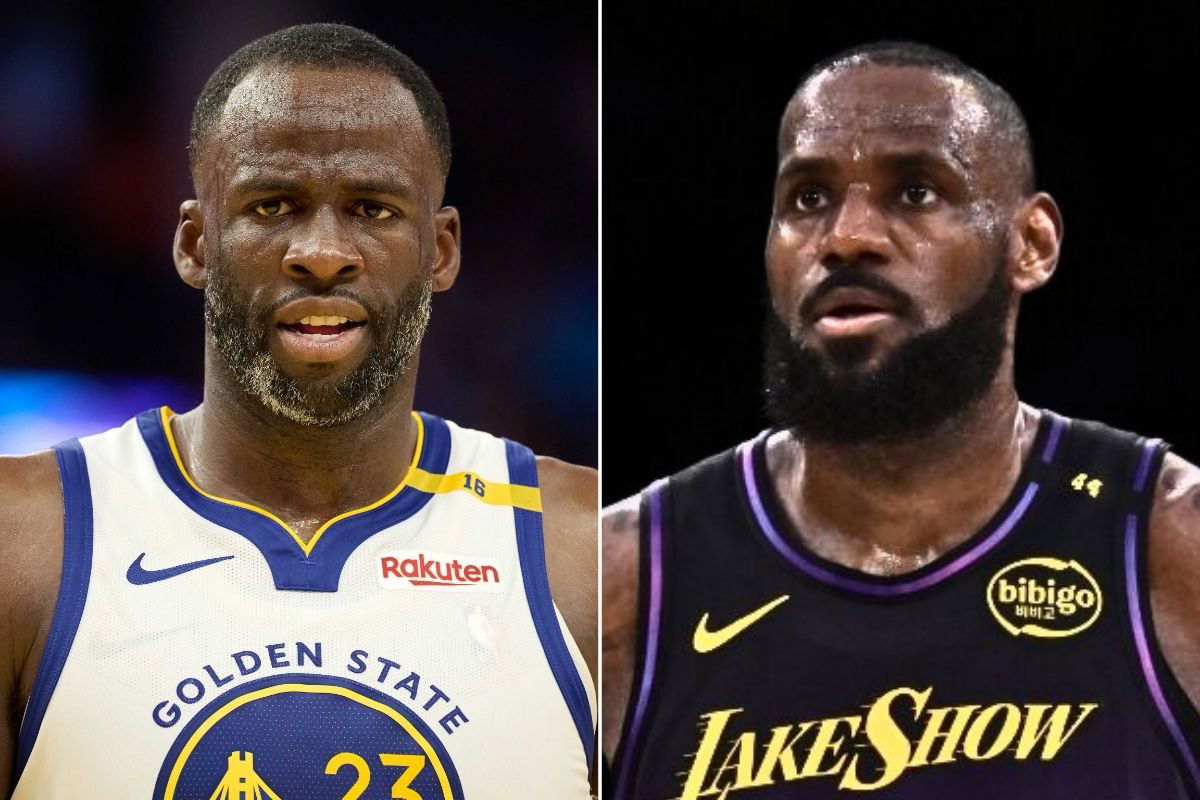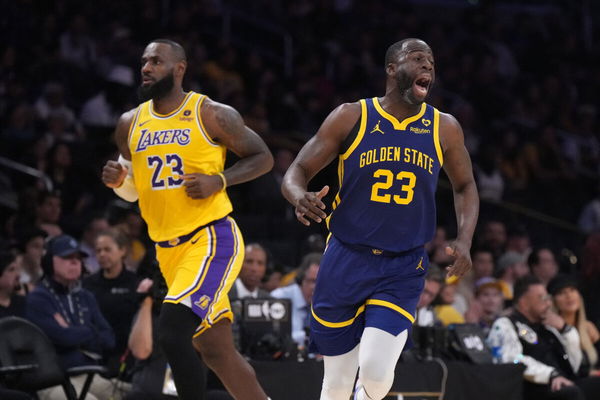
Imago
Image Credits: Imagn

Imago
Image Credits: Imagn
“It’s just who can run faster, who can hit more threes. It’s no substance… very boring.” Draymond Green’s blunt assessment of the modern NBA wasn’t just about style of play — it was a veiled shot at the way the game is talked about. In his view, too many analysts reduce basketball to a math problem, ignoring the nuance, IQ, and lived experience required to actually win.
Watch What’s Trending Now!
That simmering player–media friction flared again when LeBron James posted a clip of Denzel Washington tearing into critics who have never set foot in the arena they judge. The message wasn’t wrapped in metaphor — it was aimed squarely at the talk-first, play-never voices shaping today’s sports conversation.
Draymond Green made sure it hit even harder. Reposting the clip to his Instagram story, the Golden State Warriors forward added his emphatic line: “Some can! Some can’t! Shut up! Preach🐐,” an explicit endorsement of LeBron James’ story and a pointed reminder that for some NBA veterans, enough is enough.
Denzel bluntly stated in the clip, “Everybody’s got an opinion. We live in a world of opinionaires. You know, that’s what I call them, opinionaires. They’re all the shows, a bunch of the guys, a couple of them that have played, but most of them who haven’t, who have an opinion about what something should be when they haven’t done it. Those who can’t talk about those who can. Those who have know what they’re talking about. Those who haven’t don’t. Period. Too much talking. Too much talking, everybody got an opinion.”
Green doubled down on this critique during the 2025 NBA All-Star Weekend, linking the league’s declining viewership to a deeper issue:
“And in turn, you ask yourself, ‘Where did the ratings go?’ And all, nobody wants to—like in any world you go to, you start in year one, you don’t get the same thing that the people in year 10 get. And so I think it’s bred a lot of entitlement, and with that, I think has come a lot of disdain from fans.” For Green, the media’s role in hyping young players as instant superstars fosters a culture of entitlement that alienates fans and oversimplifies the game’s complexity, further widening the gap between players and the analysts who judge them.Instead of targeting specific personalities, the clip and subsequent repost leaned into the idea that credibility comes from lived experience, not just observation. That distinction has long been a flashpoint in the NBA community, where the gap between player insight and media narrative can shape how careers are perceived, reputations are built, and legacies are discussed. In that light, the clip’s message wasn’t simply defensive, but a call to rethink who gets to define expertise in the sport.
This stance also ties into an ongoing shift in sports culture, where active players have more tools than ever to shape public opinion. Social media lets them address narratives instantly, without relying on press conferences or sit-down interviews. It allows them to set the tone, correct misinformation, and directly challenge coverage they see as unfair or uninformed. By weighing in so visibly, both veterans reminded fans and pundits alike that their lived experience brings a layer of authority no amount of studio analysis can replicate.
Player Solidarity In The Spotlight
For Draymond Green, this isn’t uncharted territory. The Warriors forward has often called out analysts for what he sees as lazy or uninformed takes, sometimes even using his podcast to fire back. His confrontations with media members have ranged from playful back-and-forths to heated debates, but the underlying point has stayed the same: if you haven’t been there, you can’t fully understand the grind.

USA Today via Reuters
Apr 9, 2024; Los Angeles, California, USA; Golden State Warriors forward Draymond Green (right) and Los Angeles Lakers forward LeBron James react in the first half at Crypto.com Arena. Mandatory Credit: Kirby Lee-USA TODAY Sports
While LeBron James often opts for measured public responses, he hasn’t shied away from amplifying messages he believes in. “This ain’t about me either. At this point I don’t really care what’s said about me. It’s always something. This is about the impact the negativity is having on our beautiful game and our fans. I know I speak for a lot of players and, more importantly, a helluva lot of great fans that truly love and celebrate this sport around the world,” James said during the 2025 All-Star Weekend.
His remarks came in defense of Anthony Edwards, who had expressed reluctance to embrace the “face of the league” label. LeBron’s frustration with the media was clear: “Why do you want to be the face of the league when all the people that cover our game and talk about our game on a day-to-day basis s–t on everybody? To have that responsibility, it’s just weird. It’s weird energy.” For James, the issue wasn’t about personal criticism — it was about the corrosive effect of constant negativity on the NBA’s culture and its connection with fans.
By sharing the clip in question, he added weight to the argument without delivering the message himself. That choice speaks to a subtle but calculated way of influencing discourse: letting someone else be the voice while still signaling full support.
The alliance here is telling. Two players who operate in very different ways, confrontational and strategic, found common ground in defending the value of lived experience. In doing so, they reminded fans that the friction between athletes and media isn’t just about hurt feelings or criticism. It’s about who gets to tell the game’s story, and whether those storytellers truly understand the battles being fought on the court.

